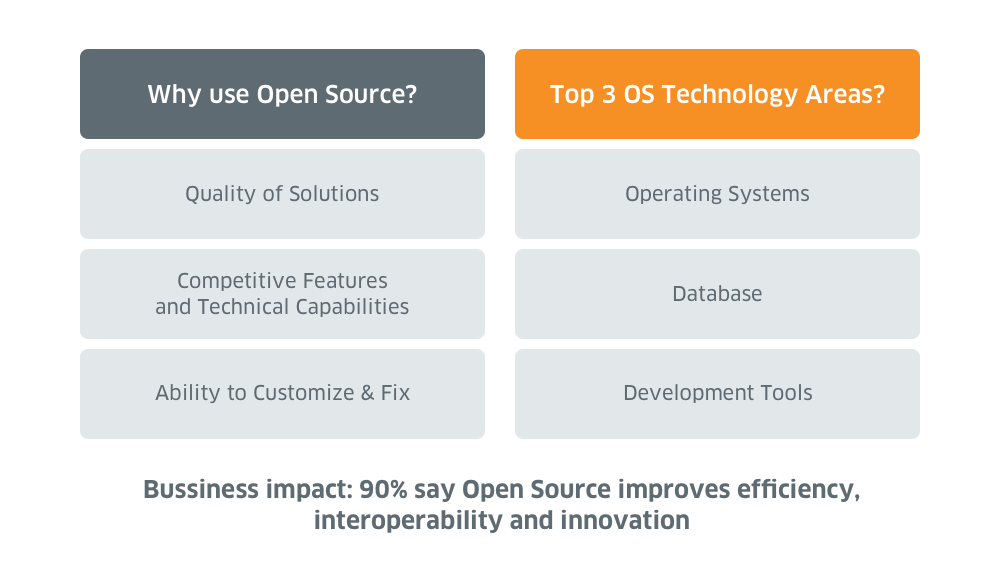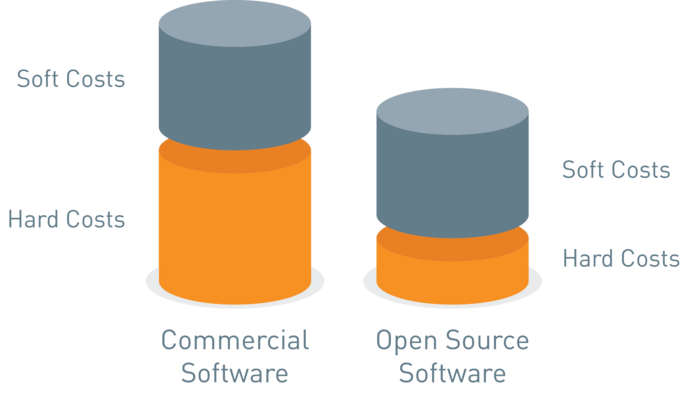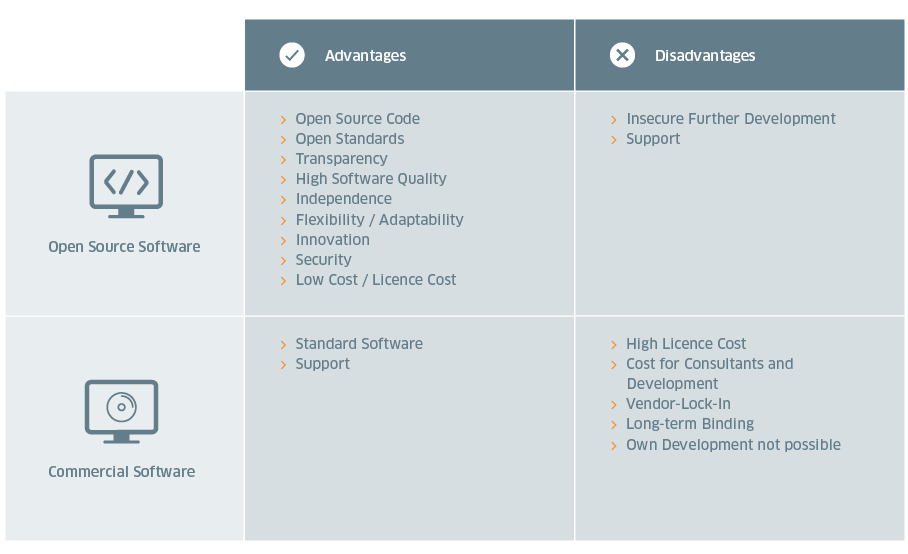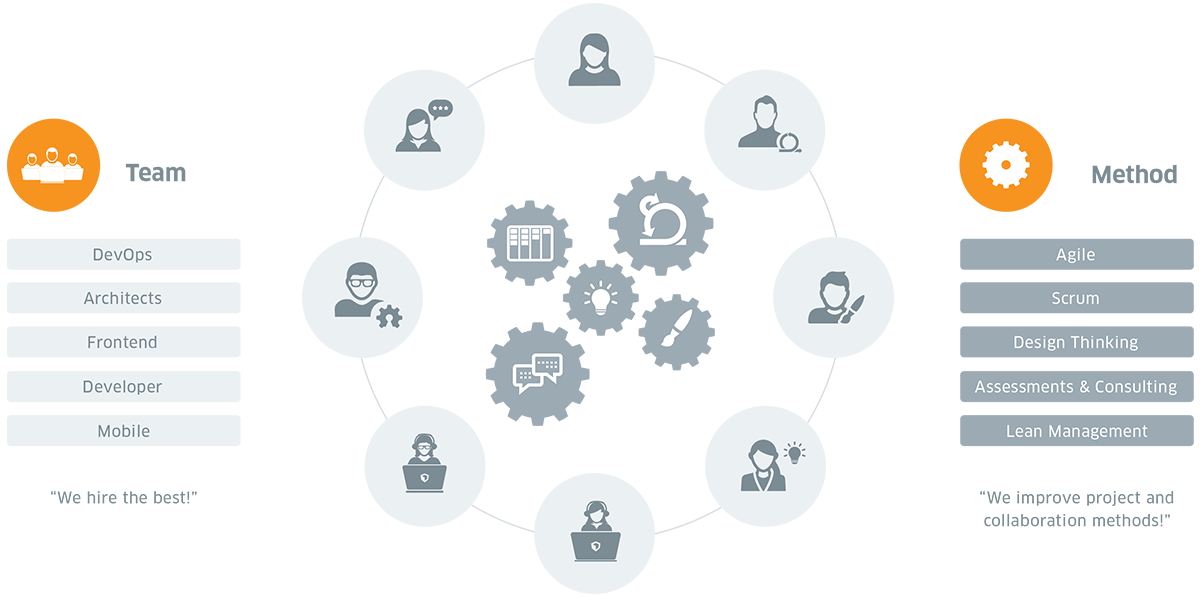Get in touch
Whenever new software is introduced, one is faced with a fundamental question: Open Source or commercial software? The decision for the appropriate software usually has long-term implications and should therefore be considered carefully. We show why making a decision for Open Source software is a good choice in many cases.
Open Source software means that the source code of the software is publicly and freely available, that is, can be viewed, modified and used by third parties. Open Source does not mean it’s free, but many Open Source technologies are available free of charge, in some cases Enterprise versions with extended features and support are offered.
The Open Source principle is widespread, well-known examples of Open Source software are Linux, Apache, LibreOffice, Mozilla Firefox or Android. Large companies such as Sun, Oracle, Google and Novell support Open Source projects, which mainly subsist on the community of a large number of developers as well as smaller companies. For example, AOE has frequently contributed to the continued development of Open Source projects such as Magento or TYPO3; many of our developers work on the development of Open Source projects in their free time or during conference hackathons.
There are numerous valid reasons to use Open Source software. An Open Source survey found the most important reasons for implementing Open Source software. In addition to costs and independence from software vendors (vendor lock-in), the high-quality software, competitive features and technical capabilities as well as adaptability are important features of Open Source software.

Commercial software programs and solutions are proprietary developments of the respective provider, the source code is only accessible to the vendor. Expensive consultant teams are necessary for software integration and function extensions. If the manufacturer has no capacity or demand for a feature, it can’t be developed at all or only at very high costs.
With Open Source software, the source code of the software is publicly accessible. This allows users a high degree of flexibility and individual adaptations. The use of functional extensions are possible independently or with the help of IT service providers.

The use of commercial software binds companies to the software manufacturer in the long term. Vendor lock-in makes changing to alternative offers more difficult for customers due to high exchange costs, ownership of data or technical barriers.
With Open Source software, license fees are often only charged for enterprise use. Integration, adaptation and further development can be carried out by internal teams or freely selectable IT service providers, companies are not committed to individual manufacturers or service providers.


Software requirements are to be assessed individually in each case – there are many good reasons for the use of Open Source software. Possible advantages when using closed source software, such as further development or support – which usually only applies to proprietary software – can be converted into a great advantage for Open Source through cooperation with a competent IT service provider. Companies that have the appropriate software and excellent IT resources are in the perfect position to create an optimal digital future.
IT service providers or internal IT teams can take over individual customization, development and support, and are not limited to one software. In selecting an IT partner, it is advisable not only to pay attention to the technical competence, but also to consider the methodology of project management and implementation, change management qualities as well as the culture and the mindset of the IT service provider.

AOE is an agile IT service provider specialized in digital enterprise projects. The digitalization of business processes and the introduction of agile methods among our customers are important core tasks in our digital projects. In order to meet the requirements of enterprise projects, we create the optimal conditions with agile methods in order to be able to deliver software at the earliest possible stage and to react quickly and flexibly to changes. With our Team & Method Approach we achieve above-average results and excellent customer satisfaction in long-term cooperation with our customers.